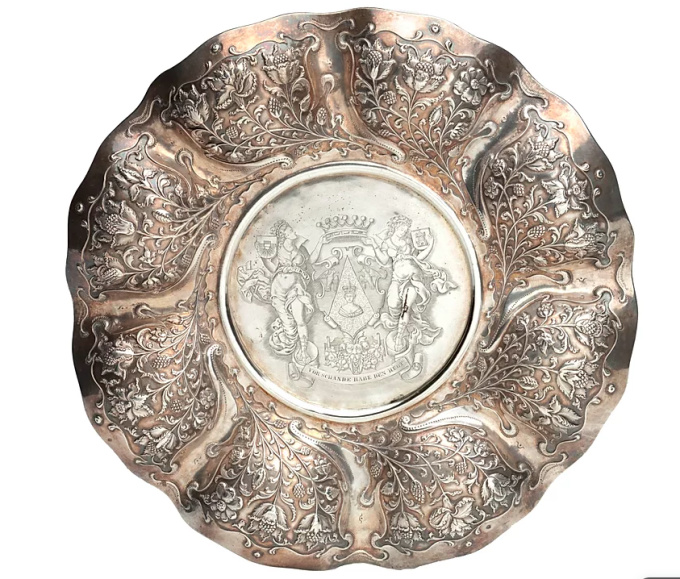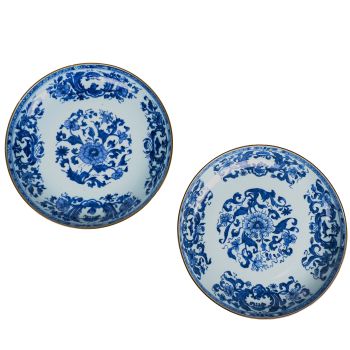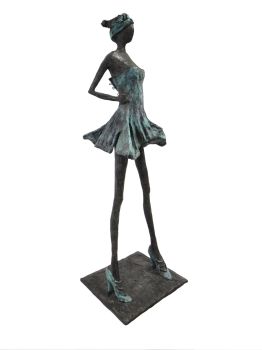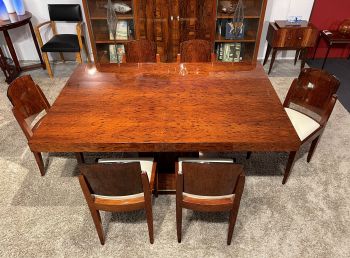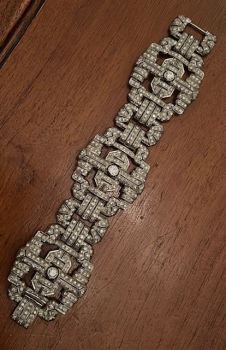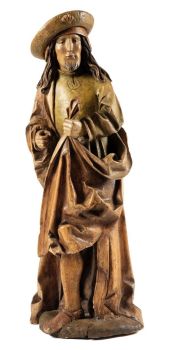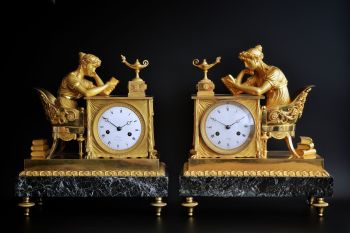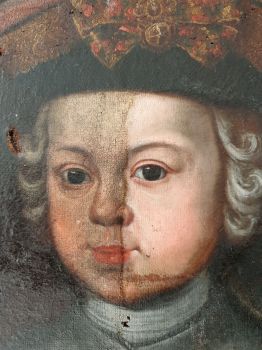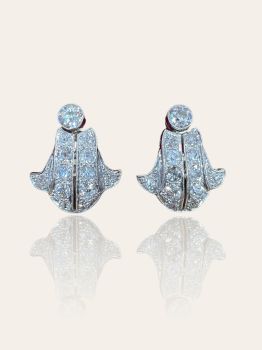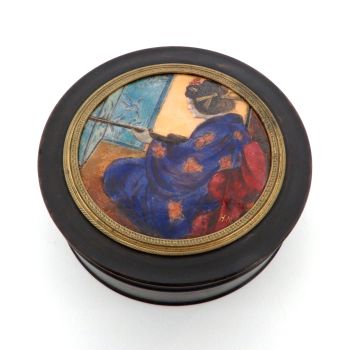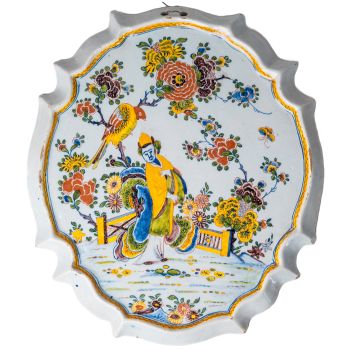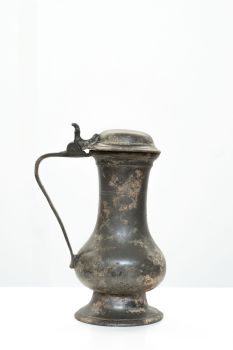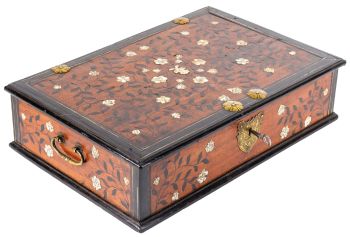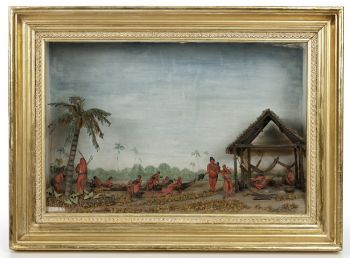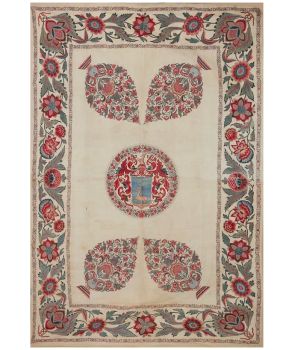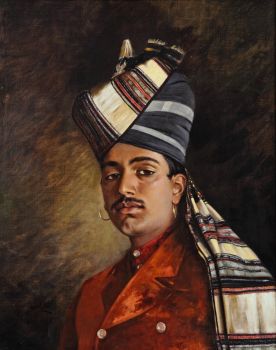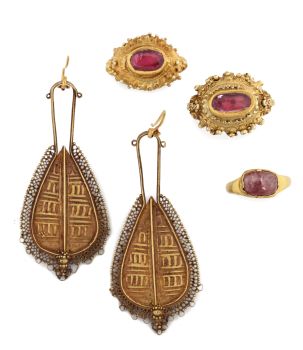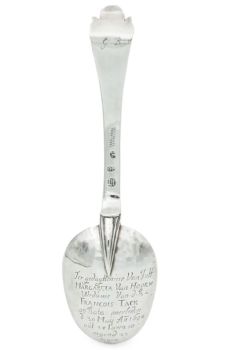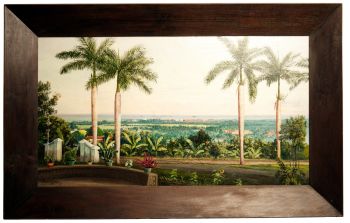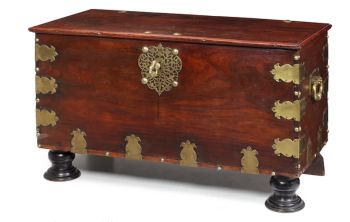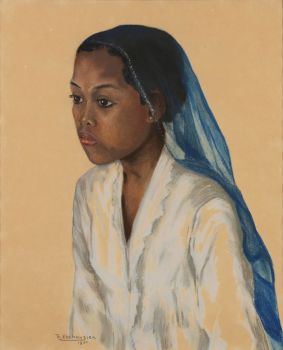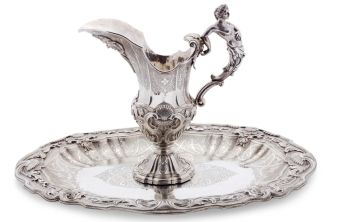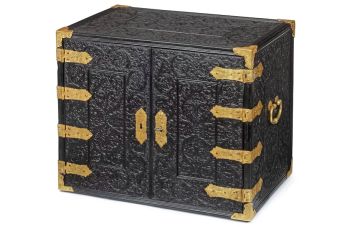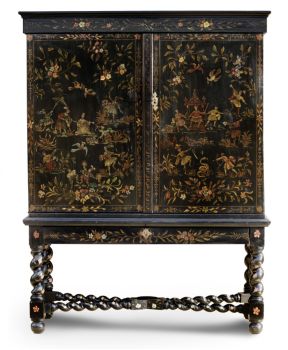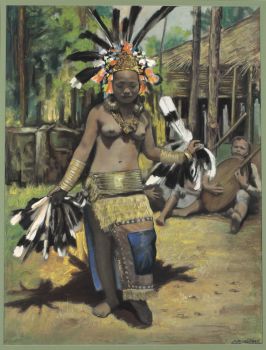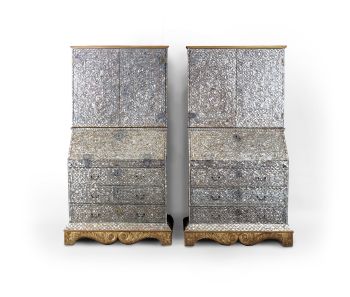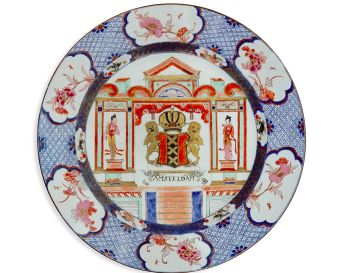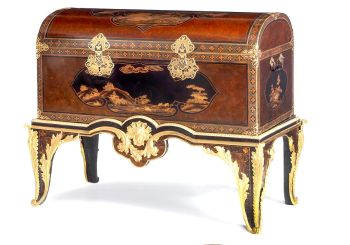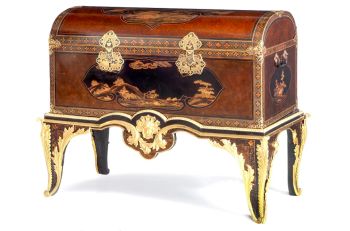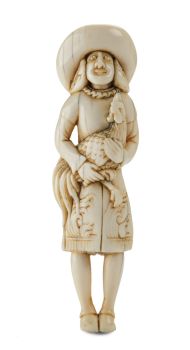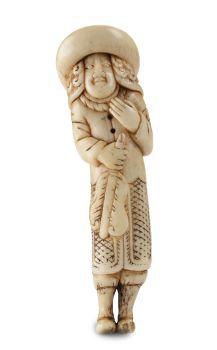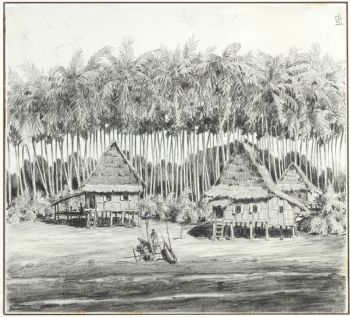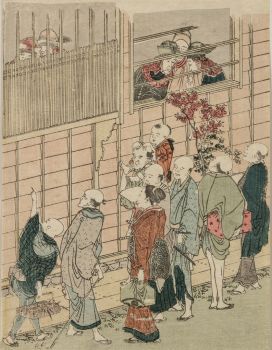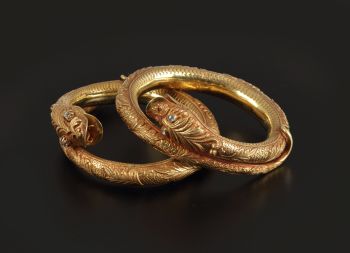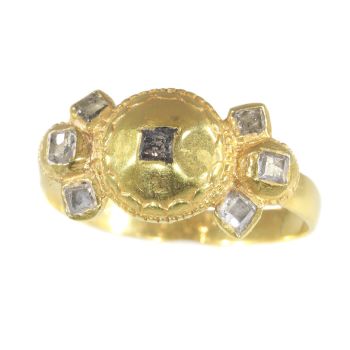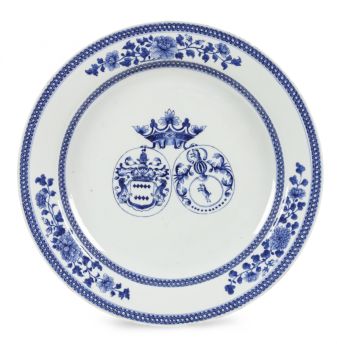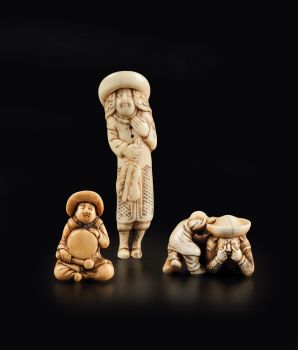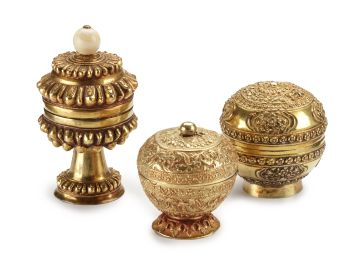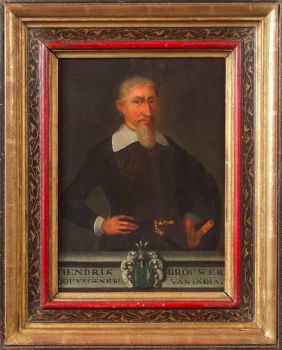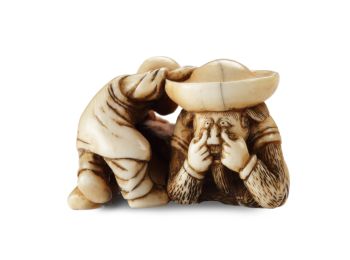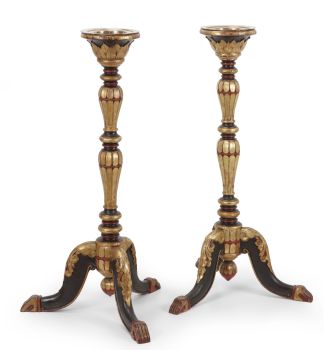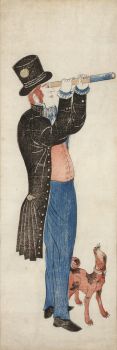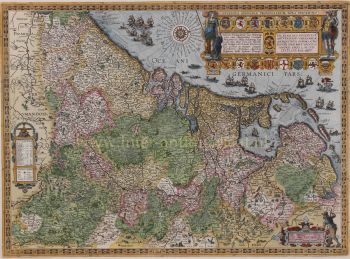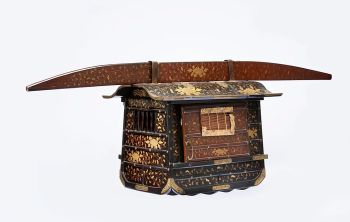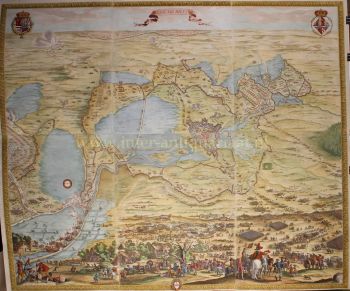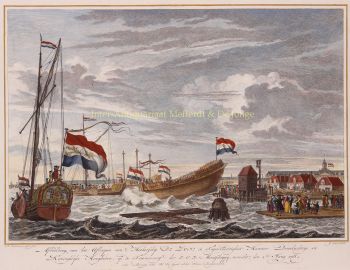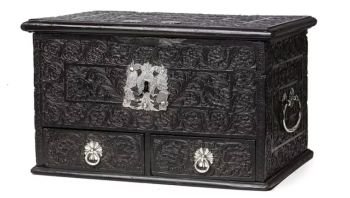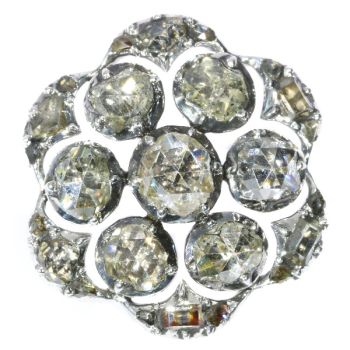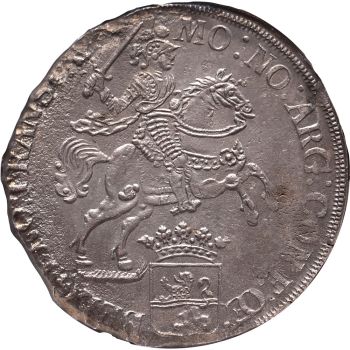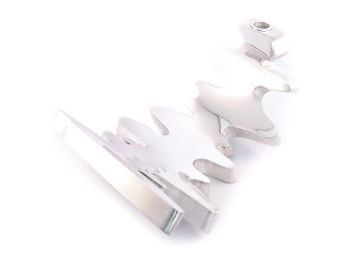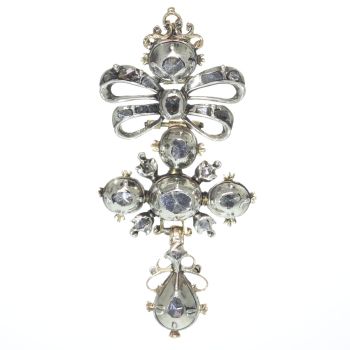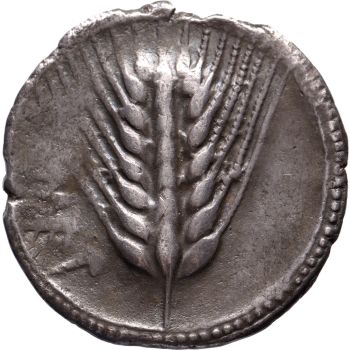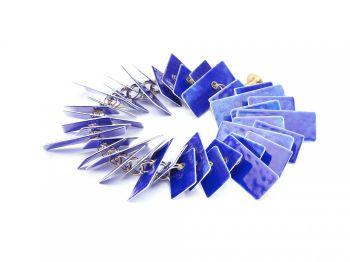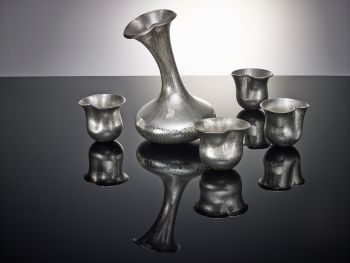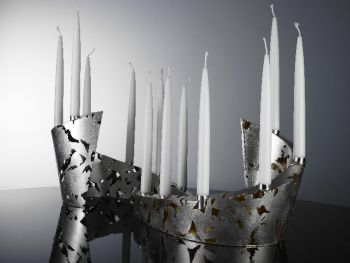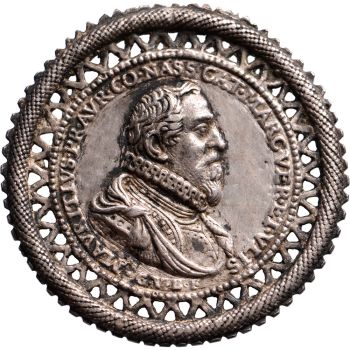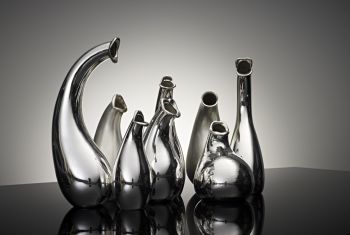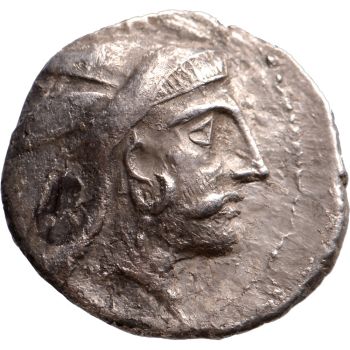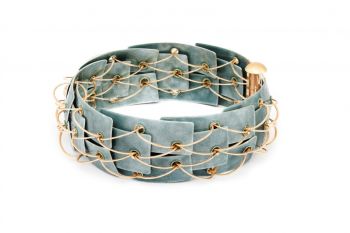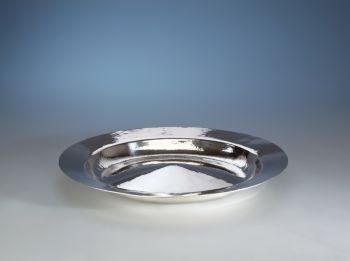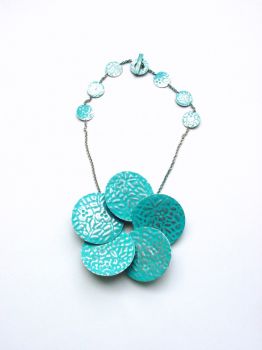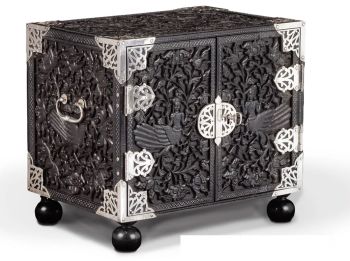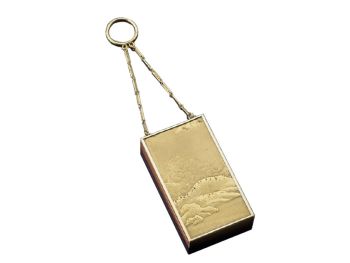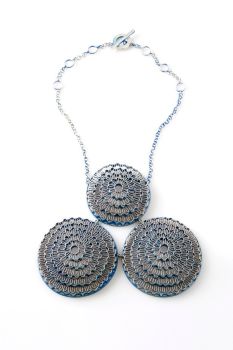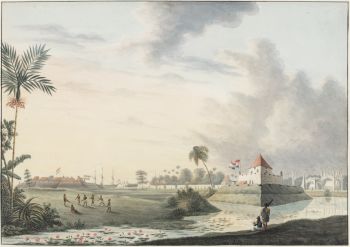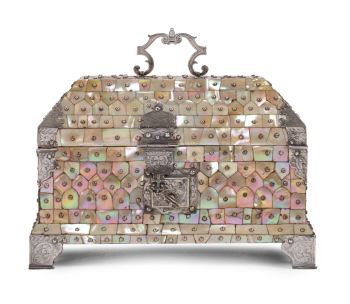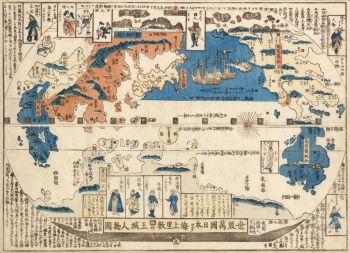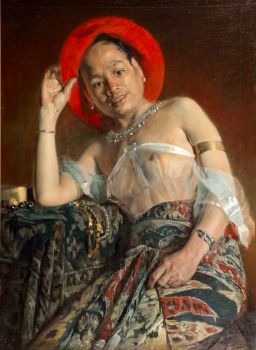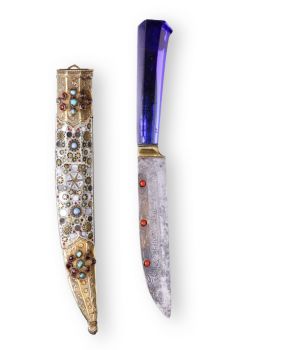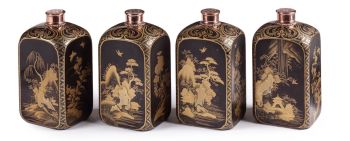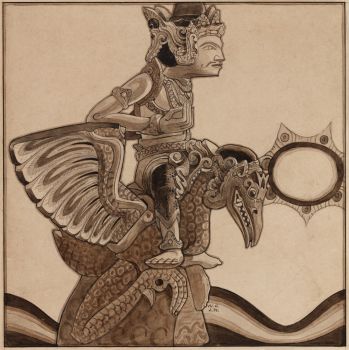AN UNUSUAL INDONESIAN LOBBED SILVER DISH late 17th
Onbekende Kunstenaar
Zilver
Prijs op aanvraag
Zebregs & Röell - Fine Art - Antiques
- Over kunstwerkAN UNUSUAL INDONESIAN LOBBED SILVER DISH
Jakarta (Batavia) or Coromandel coast, third quarter 17th century, apparently unmarked
The eight lobbed dish exuberantly decorated with floral motifs, with the middle section replaced, consisting of indistinctly marked German silver from the early 19th century, bearing the coat-of-arms of the Von Pfeffel family.
Diam. 30.5 cm
Weight 461 grams
Note:
Lobbed silver dishes with exuberant floral decorations were characteristic of the decorative arts in the Netherlands in the first half of the 17th century. This style of floral decoration was adopted by silversmiths as well as by furniture makers working on the Coromandel Coast and in Batavia, often by workers who had fled the Coromandel Coast because of war and famine. In Batavia this style was known as “Custwerck” (work from the Bengal coast).
These lobbed dishes are seldom marked. Only after 1667 the use of the town mark became obligatory in Batavia but only for silver made in Batavia not for silver imported in Batavia from other VOC settlements. The engraved coat of arms in the centre is a replacement of the original centre.
The coat of arms can be identified as those of Christian Hubert von Pfeffel (1765- 1834). As a diplomat, statesman, ambassador of Bavaria in London and Saxony and councillor to the King of Bavaria, he was made “Freiherr” in 1828 and since then used this coat of arms. His son Karl Maximilian Friederich Hubert Freiherr von Pfeffel (1811-1890) in 1836 married Karoline Adelheid Pauline von Rottenburg (1805-1872), the natural daughter of Prins Paul von Württemberg (1785-1852) and his mistress Margrethe Porth. Paul was the jounger brother of the King Wilhelm I of Württemberg (1781-1864). The heraldic motto of the von Pfeffels Vur Schande habe den Huot means as much as “Beware of Shame”. Christian Hubert Theodoor Marie Karl von Pfeffel Karl Maximilian’s grandson was the last male in the von Pfeffel line. His daughter, Marie Louise (Paris in 1882 - Cornwall 1944), born and grown-up in France, changed her name in de Pfeffel. She was the great grandmother of Boris Alexander de Pfeffel Johnson, the present British Secretary of State. None of the members of the von Pfeffel family had any direct links with the Dutch East Indies but indirectly by way of the Royal House of Württemberg they did.
Sophia Frederika Mathilda von Württemberg (1818-1877), daughter of Wilhelm I King of Württemberg, in 1839 married Willem III of the Netherlands and was Queen from 1849 till her death in 1877. The marriage was a disaster; Willem, known in Holland as “King Gorilla”, had many affairs and Sophie, being intellectually far his superior with much interest in art and culture, was a bit of a hysteric. Sophie was a niece of Prins Paul von Würtemberg and therefore a full cousin of Karoline von Pfeffel, the natural daughter of Paul von Württemberg. Karoline and Sophie were good friends.
In the collection of the Gemeente Museum Den Haag is a beautiful lobbed dish with a border of irrefutable late 17th century oriental origin but with an inserted European silver plaque in the centre showing Queen Sheba’s visit to King Solomon. The maker of this plaque must be sought in the circles around the Augsburg silversmith Johann Andreas Thelot (1655-1734). Although the dish and plaque date from around the same time they have been put together only in the late 19th century. In the late 19th century it was certainly not uncommon to make counterfeits of this kind to “improve”on things from the past, as these two examples show (Silver from Batavia, Titus Eliëns, Gemeentemuseum Den Haag, ill. 4). - Over kunstenaar
Het kan voorkomen dat een kunstenaar of maker onbekend is.
Voor sommige werken is het niet te bepalen door wie het gemaakt is of dat het is gemaakt door (een groep) ambachtslieden. Voorbeelden zijn beelden uit de Oudheid, meubels, spiegels of handtekeningen die vaak niet duidelijk of leesbaar zijn. Maar ook sommige werken zijn helemaal niet gesigneerd.
Ook kunt u de volgende beschrijving vinden:
•"Toegeschreven aan …." waarschijnlijk een werk van de kunstenaar maar niet zeker of gedeeltelijk
•“Atelier van ….” of werkplaats van” een werk uitgevoerd in het atelier of atelier van de kunstenaar, eventueel onder zijn toezicht
•“Cirkel van ….” een werk uit de periode van de kunstenaar die zijn invloed laat zien, nauw verbonden met de kunstenaar maar niet noodzakelijkerwijs zijn leerling
•“Stijl van ….” of “Volger van ….” een werk uitgevoerd in de stijl van de kunstenaar, maar niet noodzakelijk door een leerling; kan eigentijds of bijna eigentijds zijn
•“Wijze van ….” een werk in de stijl van de kunstenaar maar van latere datum
•"Na …." een kopie (van welke datum dan ook) van een werk van de kunstenaar
•“Getekend…”, “Gedateerd….” of “Ingeschreven” dan is het werk gesigneerd/ gedateerd/ ingeschreven door de kunstenaar. De toevoeging van een vraagteken duidt op een element van twijfel
•"Met handtekening ...", "Met datum ...", "Met opschrift..." of “Draagt signatuur/datum/opschrift” dan is de handtekening/datum/opschrift toegevoegd door iemand anders dan de kunstenaar
Bent u geïnteresseerd om dit kunstwerk te kopen?
Artwork details
Related artworks
Onbekende Kunstenaar
Set Franse Empire Pendules / Empire Lectura penduleearly 19th
Prijs op aanvraagKuipers Kunst & Antiek
1 - 4 / 12Onbekende Kunstenaar
A silver spoon commemorating Juff’ Margareta van Hoorn1656 - 1694
Prijs op aanvraagZebregs & Röell - Fine Art - Antiques
Onbekende Kunstenaar
A Dutch colonial Indonesian betel box with gold mounts1750 - 1800
Prijs op aanvraagZebregs & Röell - Fine Art - Antiques
1 - 4 / 24Onbekende Kunstenaar
A silver spoon commemorating Juff’ Margareta van Hoorn1656 - 1694
Prijs op aanvraagZebregs & Röell - Fine Art - Antiques
Onbekende Kunstenaar
Japanese transition-style lacquer coffer 1640 - 1650
Prijs op aanvraagZebregs & Röell - Fine Art - Antiques
Onbekende Kunstenaar
EEN IVOREN NETSUKE VAN EEN NEDERLANDER MET EEN HAAN18th century
Prijs op aanvraagZebregs & Röell - Fine Art - Antiques
Onbekende Kunstenaar
Hollanders in Miniatuur18th century
Prijs op aanvraagZebregs & Röell - Fine Art - Antiques
Onbekende Kunstenaar
AN IVORY NETSUKE OF A DUTCHMAN FROLICKING WITH A SMALL BOY18th century
Prijs op aanvraagZebregs & Röell - Fine Art - Antiques
Onbekende Kunstenaar
EEN JAPANS MODEL VAN EEN NORIMONO, EEN DRAAGSTOEL1650 - 1700
Prijs op aanvraagZebregs & Röell - Fine Art - Antiques
1 - 4 / 24- 1 - 4 / 24
Onbekende Kunstenaar
EEN IVOREN NETSUKE VAN EEN NEDERLANDER MET EEN HAAN18th century
Prijs op aanvraagZebregs & Röell - Fine Art - Antiques
1 - 4 / 12

